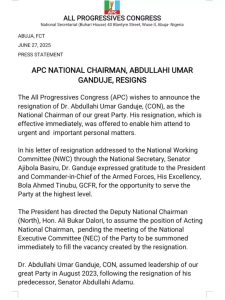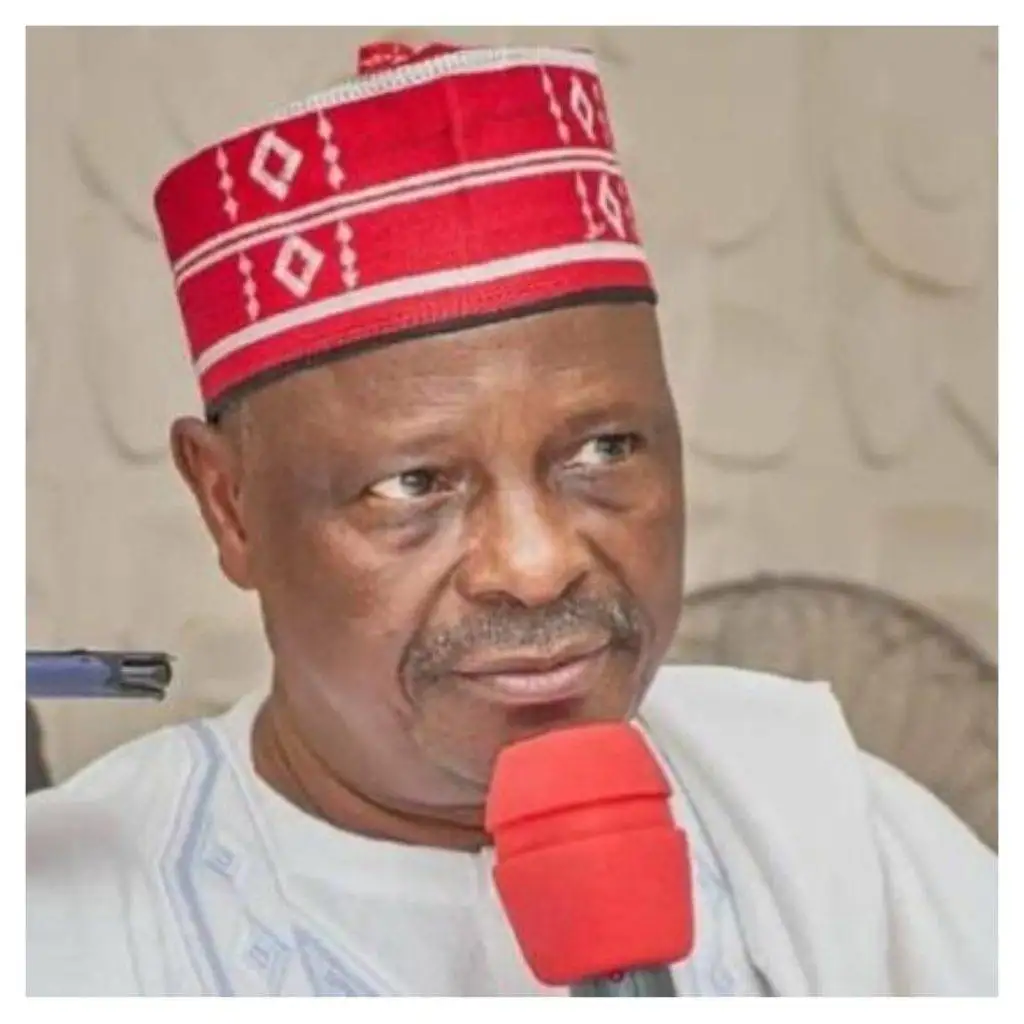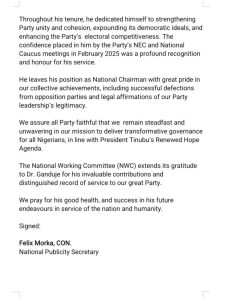The National Chairman of the All Progressives Congress (APC), Dr. Abdullahi Umar Ganduje, has officially stepped down from his position in what insiders say was a move influenced by President Bola Ahmed Tinubu. Though no formal reason was provided for the abrupt resignation, it is widely believed that it was requested by the President during a late-night meeting on Friday. Shortly after, Ganduje’s portrait was removed from the APC national secretariat, signaling a swift transition. A copy of Ganduje’s resignation letter, accessed by New Daily Prime, is attached below.

This development comes amid rising political intrigue surrounding the 2027 general election. President Tinubu, while remaining silent on Vice President Kashim Shettima’s status as his potential running mate, has stated that he will only announce his choice after officially accepting the party’s nomination at the next APC national convention. His decision to withhold endorsement at this stage is viewed by many as a strategic move, as political realignments gain momentum within the ruling party.
Read Also:
ADA will boost Tinubu’s 2027 re-election – APC’s Okechukwu
Akpabio predicts defection of Rivers, Bayelsa govs to APC
INEC working with APC to block new parties, PDP chieftain claims
Adding further complexity to the unfolding drama, there are strong indications that formal Kano State Governor, Senator Rabiu Musa Kwankwaso, may be on the verge of joining the APC. High-level negotiations are said to be ongoing, and several sources suggest that Kwankwaso could be tapped as Ganduje’s successor and control APC structure in Kano State. The possibility of Kwankwaso assuming the party’s top position is believed to have created discomfort for Ganduje, whose longstanding political rivalry with the governor has been well documented.
Ganduje’s departure follows a pattern of short-lived leadership tenures within the APC. While Chief John Odigie-Oyegun remains the only chairman to have completed a full term since the party’s formation, subsequent leaders, including Adams Oshiomhole, Mai Mala Buni, and Senator Abdullahi Adamu, either resigned or were removed before completing their tenure. This trend raises continued concerns over leadership stability within the party.
Before his resignation, Ganduje had faced legal challenges regarding his appointment. In September 2024, Justice Inyang Ekwo of the Federal High Court in Abuja dismissed a lawsuit that questioned his eligibility based on the APC’s zoning arrangements. The case, filed by the North Central APC Forum, argued that the chairmanship, having previously been held by a leader from the North Central region, should not have been transferred to Ganduje, who is from the North West. The court’s decision upheld Ganduje’s position, but the political pressure surrounding his leadership has ultimately proved decisive.
As the APC navigates this latest leadership shakeup, questions loom over the party’s internal coherence and the potential role of emerging figures like Kwankwaso in shaping its direction. With President Tinubu holding back on confirming his running mate and factions positioning themselves ahead of 2027, the party appears headed for a critical period of strategic repositioning.




